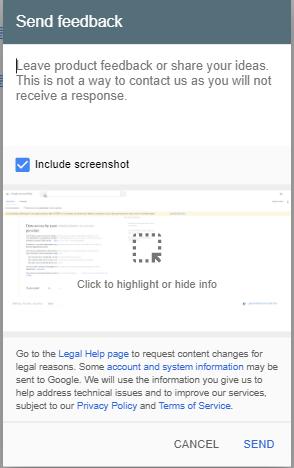DPIA Google G Suite Enterprise for SLM Rijk | 9 July 2020, with update 12 February 2021
Furthermore, G Suite Enterprise enables administrators to encrypt information on end-user devices. Especially on mobile devices, such encryption is required to minimise the risks of data breaches. In contrast with the above-mentioned interests in the use of cloud providers, Dutch government organisations have a security and geopolitical interest in storing data in local data centres or, alternatively, in a limited number of data centres in the EU. The Ministry of Defence even has a military state sovereignty interest to only store data in a sovereign cloud.
6.2
Interests of Google Google has a strong financial and economic interest in selling customers a monthly cloud-based subscription service in order to increase its revenue. Google also has an interest in using the data it collects or otherwise obtains through the provision of the G Suite services for many different purposes. Many of the 33 purposes in Google’s (consumer) Privacy Policy represent Google’s interest in using data, for example ‘Develop new products and features’ (purpose 5), ‘Use cookies for many purposes’ (purpose 29) and ’Performing research’. Google has a business and marketing interest in differentiating between its consumer advertising revenue-based business model, and its corporate cloud subscriptionbased business model. In Google’s Cloud Privacy Principles217, Google promises, amongst others, not to process Customer Data for advertising, and to allow customers to control what happens with their data. Google competes with Microsoft, that has similar offerings for consumer and business productivity software. Google has business and economic interests in continuing to improve and develop its services and products to stay competitive. As a cloud provider, Google has a strong interest in promoting the security of its services to convince potential customers of the reliability and impenetrability of its services. Google writes: “Google employs more than 500 full-time security and privacy professionals, who are part of our software engineering and operations division. Our team includes some of the world’s foremost experts in information, application and network security.”218 Google also writes that this “security team actively scans for security threats using commercial and custom tools, penetration tests, quality assurance (QA) measures and software security reviews.”219 Google has a commercial interest in attracting customers at a young age. The longer a user uses the same e-mail address, the higher the switching costs. The UK supervisory authority Ofcom for example has warned British telecom providers that most people are being put off switching providers to get better deals, because of the hassle of losing their email addresses.220 Google attracts end users in the Netherlands at a very young age. According to the central IT support and procurement organisation for primary and secondary schools in the Netherlands, Kennisnet, Google has a market share of 70% with the ‘free’ services G Suite for
Google, Privacy, Google Cloud Trust Principles, URL: https://cloud.google.com/security/privacy 218 Google, Google Cloud Security and Compliance, URL: https://gsuite.google.com/learn-more/security/security-whitepaper/page-2.html 219 Idem. 220 BBC News, 22 February 2020, Email address charges branded 'daylight robbery', URL: https://www.bbc.com/news/business-51571275 217
p. 92/162










